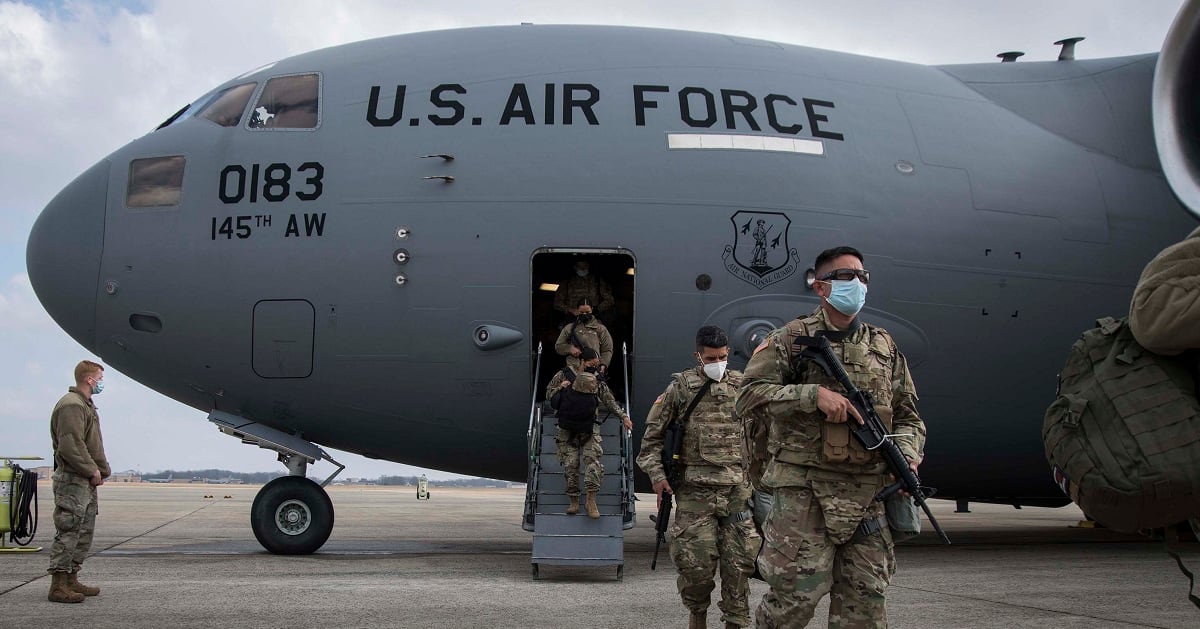Correction: A previous version of this story misstated the name of Novavax’s COVID-19 vaccine. It is currently known in the United States as “NVX-CoV2373.″
ABOARD A C-40 MILITARY TRANSPORT JET—The National Guard is shipping doses of Novavax’s newly approved COVID-19 vaccine out to units in hopes it will help shrink the number of unvaccinated Guardsmen who face expulsion.
About 10% of National Guardsmen — around 45,000 soldiers and airmen — are not fully inoculated against the coronavirus that has killed more than 1 million people in the United States and nearly 6.5 million worldwide since December 2019.
They run afoul of the Pentagon’s mandate that all troops must have completed a one- or two-shot regimen by June 30 to comply with medical requirements protecting service members from the new virus and keeping them fit for deployment. Personnel who disobey the order are subject to separation.
“Readiness is based on the number of people you have. We can’t afford to lose anybody,” Army Gen. Daniel Hokanson, chief of the National Guard Bureau, told Military Times in an exclusive interview while traveling Monday. “I’m trying to just work with the leaders [to] make sure we’re doing everything we can to get our folks vaccinated.”
The U.S. Food and Drug Administration on July 13 gave Maryland-based Novavax the go-ahead to distribute its vaccine under an emergency use authorization, making it the fourth COVID-19 shot formula to earn that approval so far.
“As soon as it was approved, we started ordering that and we’re getting it out to all of our states,” Hokanson said. “This past weekend [Aug. 6-7] was really the first drill weekend of the month, so over the course of the next couple of days, we hope to hear how successful that’s been.”
It will take time to gauge that progress. National Guard Bureau spokesperson Maj. Matt Murphy said Novavax supplies started shipping out this month and are just now arriving at their destinations, so the military projects it will take at least 90 days to get shots in arms and gather reportable data.
Still, Hokanson is optimistic that Novavax will succeed where Pfizer, Moderna and Johnson & Johnson have not: convincing those who have refused the other COVID-19 vaccines on religious grounds to get the jab.
Many of the troops who oppose the shots cite their remote connection to abortion. Novavax claims it did not use any cell lines or tissue derived from human fetuses to create its vaccine.
“Laboratory-grown cell lines descended from fetuses that were aborted decades ago were used in some early-stage testing of the Pfizer and Moderna vaccines and to grow viruses used to manufacture the Johnson & Johnson vaccine. The vaccines do not contain fetal cells,” according to the Associated Press.
Everyone who joins the military must receive a a variety of immunizations to enter, including chickenpox, rubella and hepatitis A. Each of those shots also involves cell tissue derived from fetuses, as does one version of the rabies vaccine. Rabies shots are required only for some service members in certain career fields.
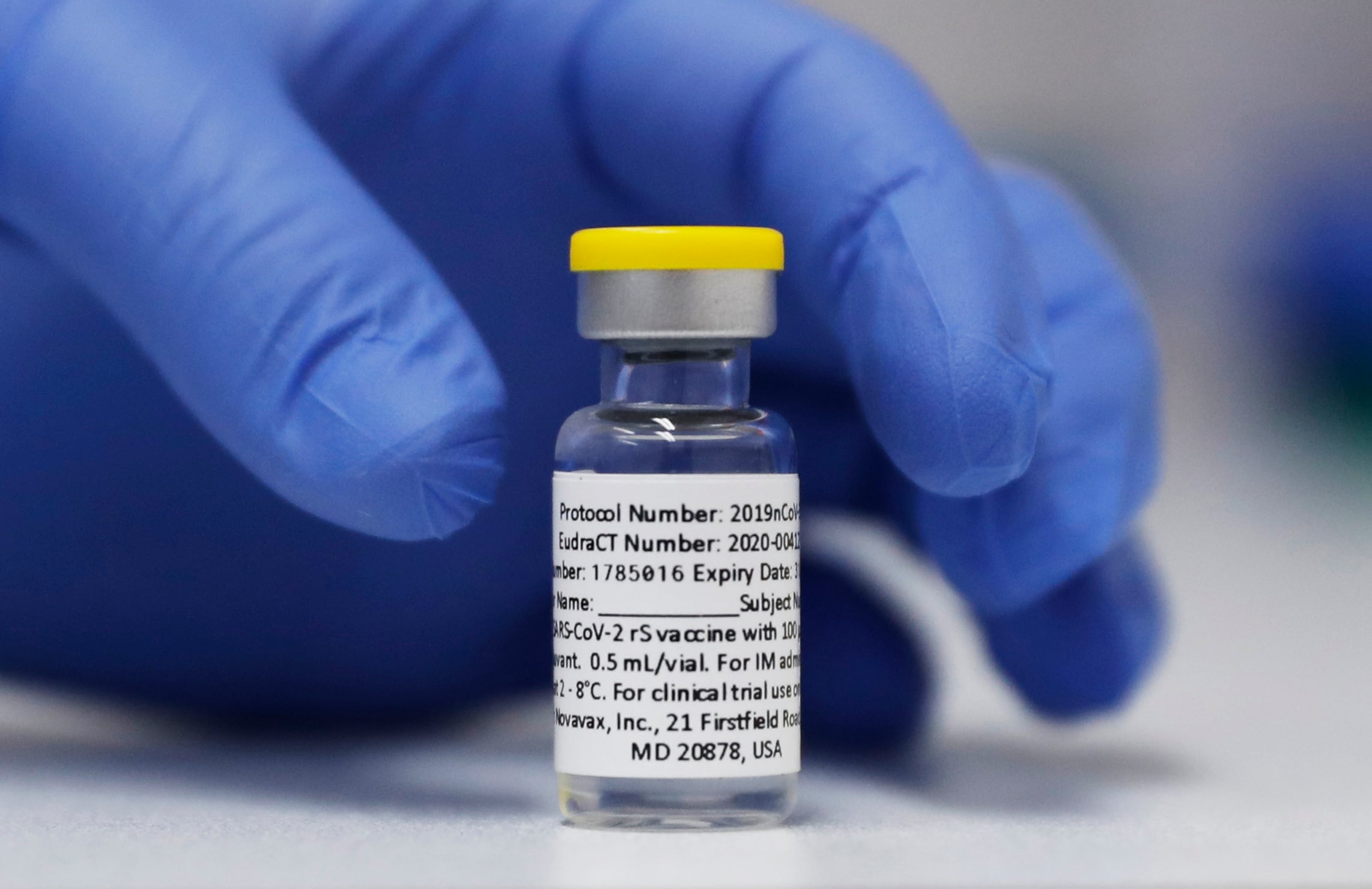
Four Air National Guardsmen had received religious waivers as of July 12, with 2,640 applications still pending, according to federal court documents. Out of more than 1,300 religious exemptions requested by Army National Guardsmen as of July 21, the service said it has granted none.
That leaves tens of thousands more Guardsmen who are neither vaccinated nor in the religious waiver pipeline. For those troops, Hokanson said, military doctors are available to answer any questions they may have about the vaccines’ safety and efficacy.
Air and Army Guardsmen can get their shots when they show up for drill, during a drop-in appointment throughout the week, or from a civilian medical provider like CVS clinics or a primary care doctor.
RELATED
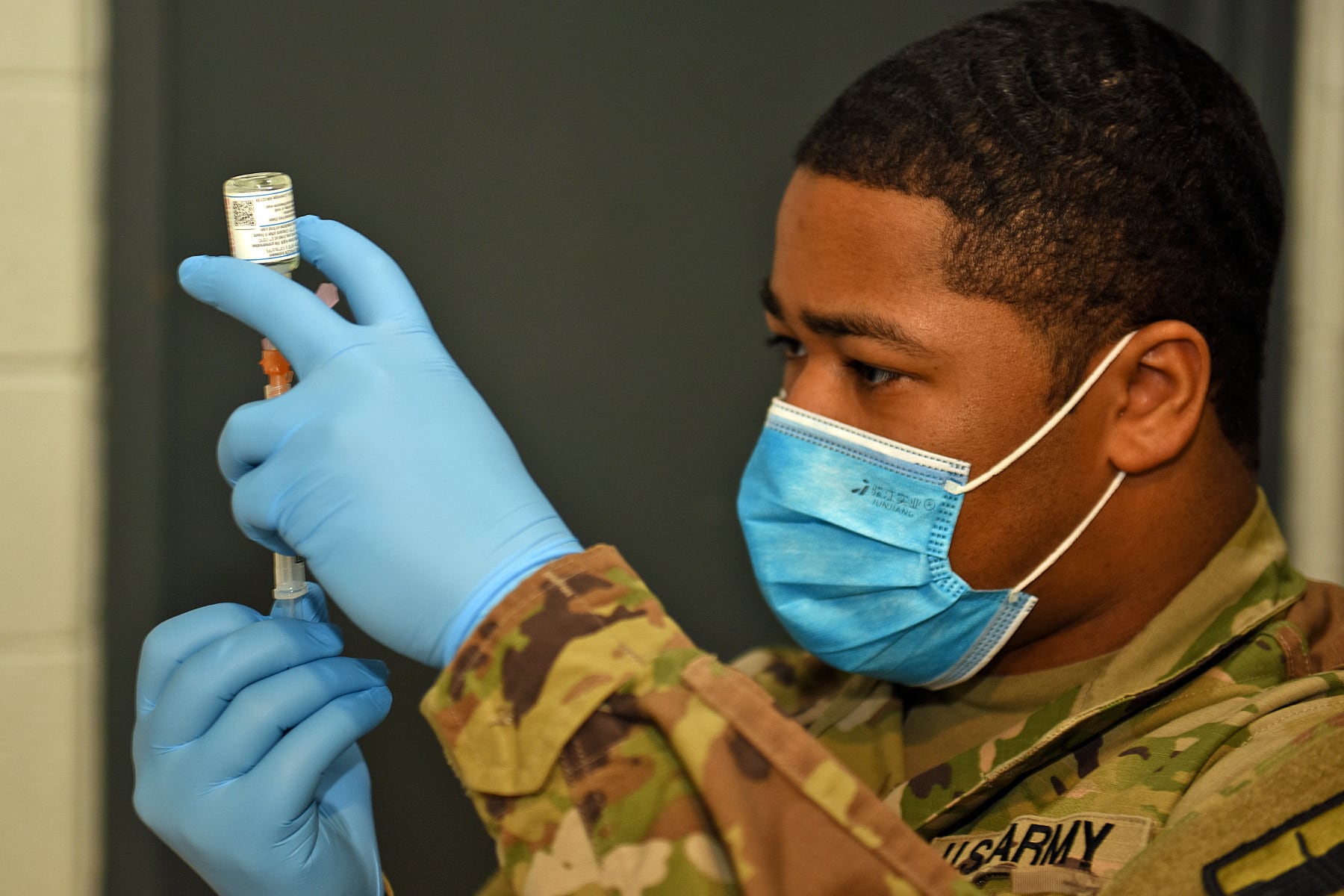
The number of Guardsmen who have started a vaccine regimen since the Army National Guard’s June 30 deadline to be fully protected — the latest of any service component — continues to rise. Between 700 and 1,000 Guardsmen a week have received at least one dose of a COVID-19 shot since that cutoff date, Hokanson said.
“We’re watching that very closely,” he said. “As it gets closer to [a new] deadline, I think we have more folks that will make the decision.”
RELATED
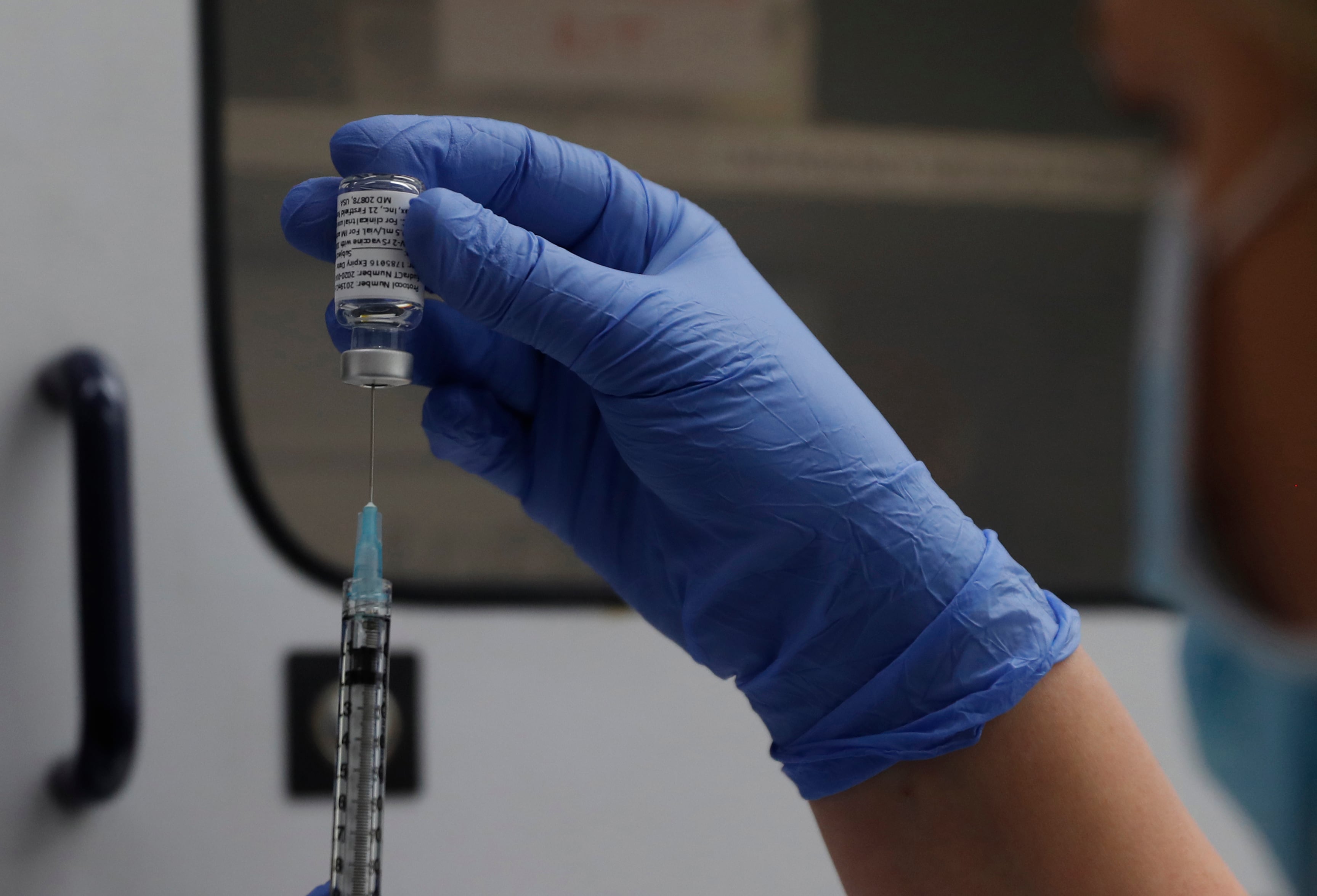
What exactly that new deadline is remains unclear. Hokanson said it’s up to Air Force Secretary Frank Kendall and Army Secretary Christine Wormuth to set those dates for their respective Guardsmen, but ongoing court battles are holding up a decision.
Army and Air Force spokespeople did not respond to a query on the matter by press time Thursday.
For example, a federal class-action lawsuit — which covers all active duty airmen and Space Force guardians, Air Force Reservists and Air National Guardsmen, and cadets at the U.S. Air Force Academy in Colorado who have applied for a religious exemption to the vaccine — has temporarily blocked the Department of the Air Force from punishing or separating those troops until the parties settle or reach a conclusion at trial.
It protects at least 100 airmen and guardians who are part of ongoing lawsuits contesting the Pentagon’s vaccine mandate, and more than 9,000 others affected by the policy, according to Siri & Glimstad, a law firm representing the plaintiffs in Doster v. Kendall in U.S. District Court in Ohio.
Hokanson said he updates all 54 adjutants general each Thursday on how the situation is progressing.
RELATED
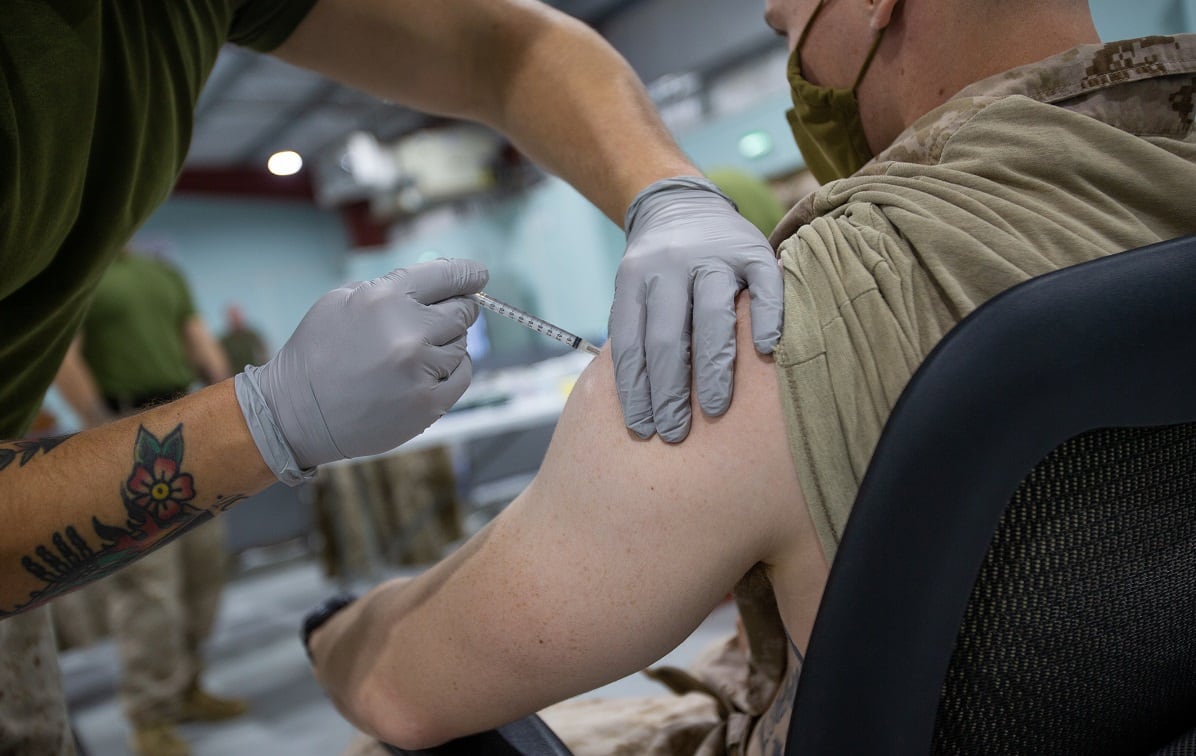
“At the end of the day, we want to make sure every soldier and airmen has had a chance to make their case, and then the services will make those decisions,” he said.
Kicking out such a large portion of the Guard could create steep readiness challenges for the military at a time when they are already stretched thin by a slew of domestic and overseas missions.
That’s led to a schism between some state Guards and their national leadership about the right way forward, in court and in the press.
On Aug. 4, Florida National Guard boss Maj. Gen. James Eifert published an op-ed in the Wall Street Journal pushing back on the vaccine mandate and the looming threat of losing troops to discharge.
“I’ve never been more worried about the future of the U.S. armed forces than I am right now,” Eifert began.
Asked whether public disagreement is undermining the National Guard’s effort to protect its force, Hokanson dismissed the op-ed as Eifert’s personal opinion.
“It’s not reflective of the organization or what we think,” he said. “We need every single soldier and airman … and we need them to be ready.”
RELATED

As of Monday, 94.4% of the Air National Guard and 88.7% of the Army National Guard were fully vaccinated. Hawaii, Puerto Rico and Vermont Guards are the most vaccinated at over 97%, while Arkansas, Louisiana and Oklahoma Guards are the least vaccinated at 82% or less.
Hokanson noted the Guard has already met its 2022 recruiting goal, and that many soldiers and airmen are extending their service. That can help offset the pain of losing people who violate the vaccine mandate, he argued.
The Guard is not considering implementing a “stop-loss” policy that would involuntarily keep troops in their jobs to prevent the exodus from worsening, Hokanson said.
“Once we get somebody in the door, they really like what they’re doing,” he said. “So, that’s the key, is just to get them in.”
Rachel Cohen is the editor of Air Force Times. She joined the publication as its senior reporter in March 2021. Her work has appeared in the Washington Post, the Frederick News-Post (Md.), Air and Space Forces Magazine, Inside Defense, Inside Health Policy and elsewhere.
